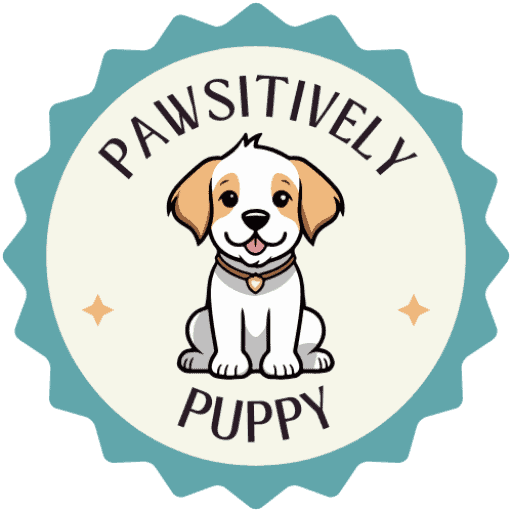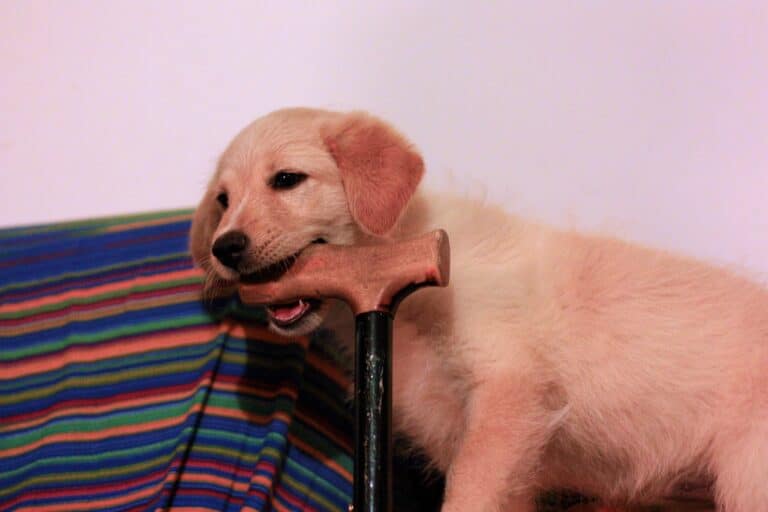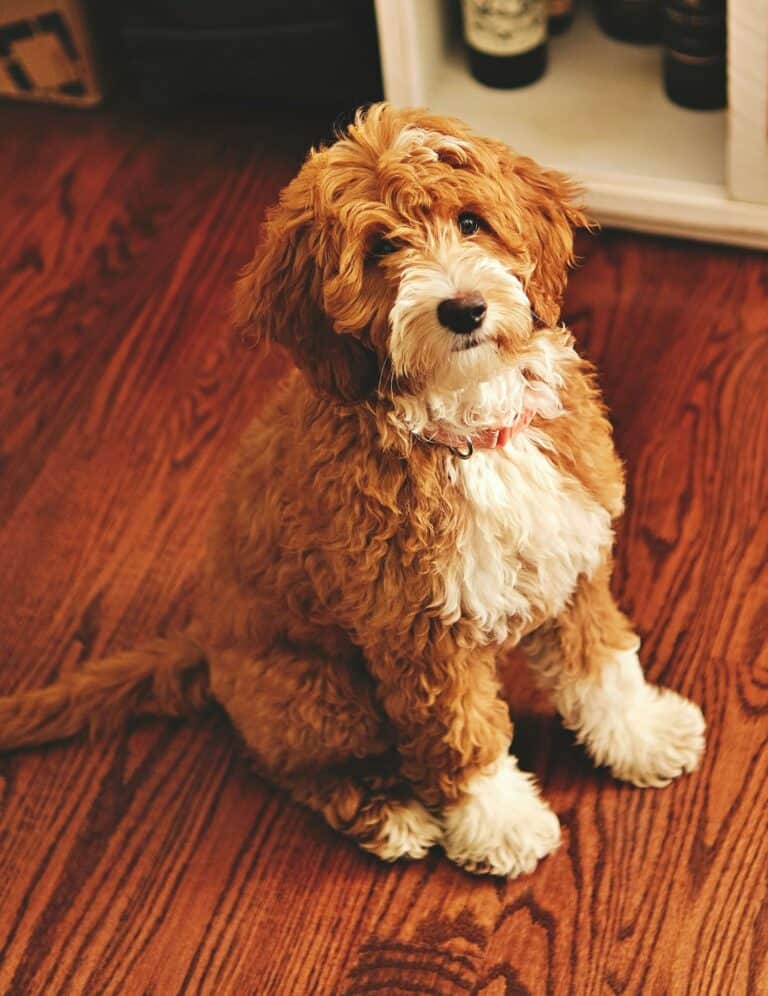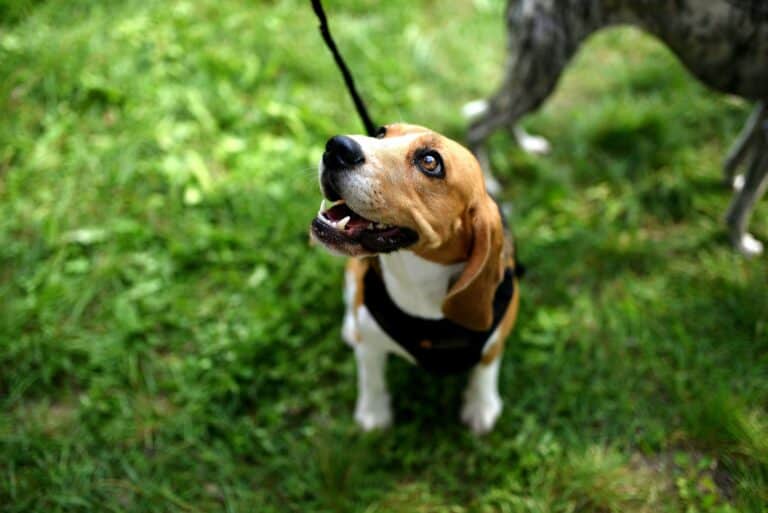Puppy Biting: Effective Strategies To Stop The Nipping
Puppy biting and nipping is a natural part of their development. However, it’s important to manage and curb this behavior to prevent it from becoming a problem as they grow older. In this article, we will explore why puppies bite, the importance of addressing this behavior, and effective strategies for managing and stopping puppy biting.
Why Do Puppies Bite?
Puppies bite for several reasons, including:
- Teething: Just like human babies, puppies go through a teething phase where they experience discomfort and try to soothe their gums by chewing on objects, including hands and fingers.
- Exploration: Puppies use their mouths to explore the world around them. Biting and nipping are ways for them to investigate their environment.
- Play Behavior: Biting is a normal part of play among littermates. They learn important social skills and bite inhibition through these interactions.
- Attention-Seeking: Sometimes, puppies bite to get attention from their owners, even if it’s negative attention.
The Importance of Addressing Puppy Biting
While puppy biting is normal, it’s crucial to address it early to prevent it from becoming a more serious issue. Uncontrolled biting can lead to injuries and create difficulties in social situations. Teaching your puppy bite inhibition and appropriate behavior will ensure they grow into a well-mannered adult dog.
Effective Strategies for Managing Puppy Biting
1. Provide Appropriate Chew Toys
Offering your puppy appropriate chew toys can help redirect their biting behavior away from your hands and fingers.
- Variety of Textures: Provide a variety of chew toys with different textures to keep your puppy engaged.
- Rotate Toys: Regularly rotate the toys to maintain your puppy’s interest.
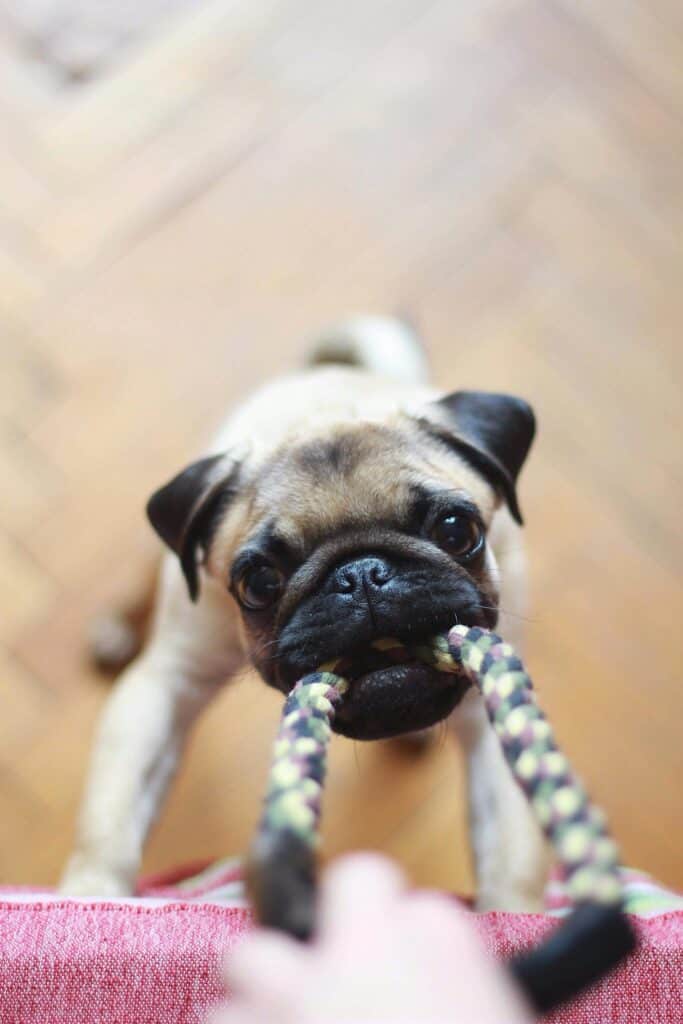
2. Teach Bite Inhibition
Bite inhibition is the ability to control the force of biting. Puppies learn this from their littermates, but it’s essential to continue this training at home.
- Yelp and Withdraw: When your puppy bites too hard, make a high-pitched yelp to mimic the sound their littermates would make. Immediately withdraw your hand and ignore your puppy for a few seconds. This teaches them that biting too hard ends playtime.
- Consistent Feedback: Be consistent with your reactions. Everyone in the household should respond the same way to biting.
3. Redirect to Toys
Whenever your puppy starts biting, redirect their attention to a chew toy.
- Keep Toys Handy: Always have a chew toy within reach so you can quickly offer it when your puppy starts biting.
- Reward Positive Behavior: Praise and reward your puppy when they chew on the toy instead of your hands.
4. Use Positive Reinforcement
Positive reinforcement is a powerful tool in training. Rewarding your puppy for good behavior will encourage them to repeat it.
- Treats and Praise: Offer treats and praise when your puppy plays gently without biting.
- Clicker Training: Consider using a clicker to mark good behavior, followed by a treat.
5. Teach the “Leave It” Command
The “leave it” command can be helpful in preventing your puppy from biting.
- Introduce the Command: Hold a treat in your closed hand and let your puppy sniff it. When they stop trying to get it, say “leave it” and reward them with a different treat from your other hand.
- Practice Regularly: Practice this command regularly to reinforce the behavior.
6. Time-Outs
If your puppy continues to bite despite redirection and other strategies, use time-outs to show that biting leads to a loss of attention and play.
- Designate a Time-Out Area: Choose a safe, quiet area for time-outs, such as a playpen or a separate room.
- Brief Time-Outs: Place your puppy in the time-out area for a brief period (1-2 minutes) whenever they bite. This will teach them that biting results in the end of playtime.
7. Socialization
Proper socialization with other puppies and well-behaved adult dogs can teach your puppy appropriate play behavior and bite inhibition.
- Puppy Classes: Enroll your puppy in a reputable puppy socialization class where they can learn from other dogs.
- Supervised Playdates: Arrange supervised playdates with other vaccinated puppies.
Conclusion
Managing puppy biting requires patience, consistency, and positive reinforcement. By providing appropriate chew toys, teaching bite inhibition, redirecting their attention, and using positive reinforcement, you can effectively curb your puppy’s biting behavior. Remember, every puppy is different, and it may take time for them to learn appropriate behavior. With persistence and the right strategies, you can help your puppy develop into a well-behaved adult dog.
Further Information
https://www.akc.org/expert-advice/training/stop-puppy-biting/
